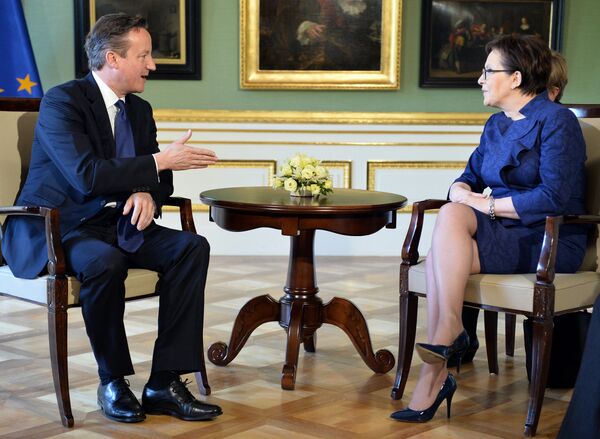Johnson said that an EU exemption that allows Denmark to prevent non-residents from buying property in the country could be emulated in the UK in reference to EU migrants benefits.
Denmark insists that any non-nationals must live in the country for five years before being eligible to buy property in the country, while Cameron has proposed restricting welfare benefits for EU nationals living in the UK during their first four years in Britain.
EU States Reject Migrant Welfare Proposals
Cameron's proposals have been shot down by fellow EU member states, led by Poland, Hungary, Czech Republic and Slovakia, who say the matter of restricting welfare benefits is a 'red-line' issue.

This rejection, along with a letter from EU Council President Donald Tusk stating that there was "no consensus" on the issue from within the bloc, sparked speculation that the UK was planning on dropping its plan to restrict welfare benefits.
My letter to EU leaders. Need to speed up negotiations to end uncertainty about the future of #UKinEU. https://t.co/MEu8Kd1lvK
— Donald Tusk (@eucopresident) December 7, 2015
However, a spokesperson for Mr Cameron said while the prime minister was open to suggestions on how to come to a compromise on the matter, he was still pushing for changes to be made.
Not always clear when Tusk uses the royal "we" and when he doesn't. #euco #brexit #ukineu https://t.co/zUqPAgbemP
— Valentin Kreilinger (@tineurope) December 7, 2015
"He is open to different ways of dealing with this issue — but they must deliver on the objective set out in the Conservative manifesto on controlling migration from the EU."
Johnson Pushes for Danish-Style Solution
However, some British MPs have hit back, with London mayor Johnson criticizing EU leaders for "recklessly" rejecting the UK's proposals.
"The PM's suggestion was modest, and sensible. It has been recklessly disregarded. This country could have a viable and exciting future outside the present EU arrangements," Boris Johnson wrote in the Telegraph newspaper.
"If we are going to stay, we need reform; and if the Danes can have their special circumstances recognized, so can Britain."
While the plans to try and emulate the Danish exemption has not been formally tabled to EU officials, it's thought that the issue may be brought up during this week's EU summit, which is to be dominated by British membership renegotiation talks.
EU officials hope to finalize a deal by February, which would then pave the way for a referendum on British membership of the EU by mid-2016.
However, the protestations from EU member states to Cameron's proposals have been seized upon by Euroskeptics in the prime minister's own Conservative party, who have called on party members to lobby MPs to campaign for a Brexit.
It's thought that around 130 of the Conservative party's 330 MPs back a Brexit, with many saying that Cameron's potential inability to exact concessions over the issue of migrant benefits may increase anti-EU sentiment.




